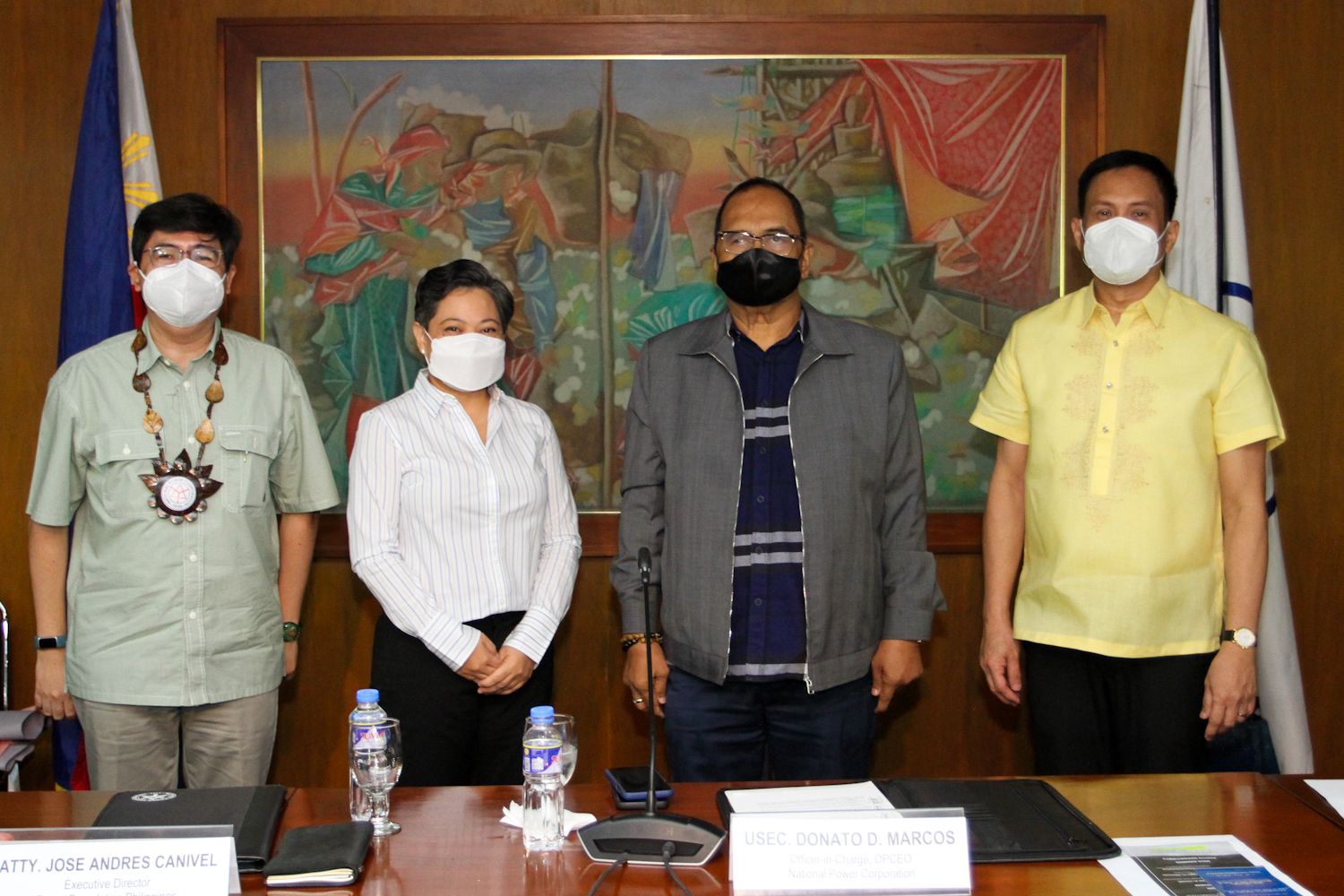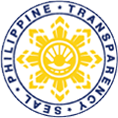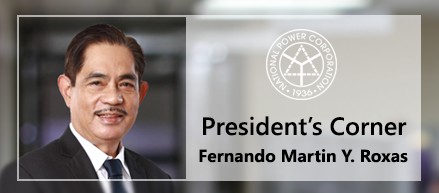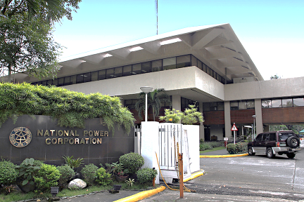Warning: Attempt to read property "id" on null in C:\xampp\htdocs\components\com_content\views\category\view.html.php on line 271
Warning: Attempt to read property "id" on null in C:\xampp\htdocs\components\com_content\views\category\view.html.php on line 271
NAPOCOR Seeks Congress Aid to Augment its 2023 Budget
State-owned National Power Corporation (Napocor) earlier sought Congress’ help for the augmentation of its 2023 budget to ensure that it can sustain the operations of its 278 Small Power Utilities Group (SPUG) plants nationwide.
In a letter addressed to the House Committee on Appropriations chaired by Rep. Elizaldy Co and vice-chaired by Rep. Stella Quimbo, Napocor emphasized the need for its supplemental budget to be included in the General Appropriations Act (GAA) for 2023 or that additional funding sources to cover the augmentation be approved this year.
“Inclusion of our proposed special provisions in the GAA would allow our Board to augment our budget if possible sources of funds become available without going back to Congress,” said Napocor president and CEO Fernando Martin Roxas.
Napocor said that the augmentation was due to the volatility of fuel prices which are currently priced twice as much than the initially available funds. Fuel accounts for almost 70% of the corporation’s operational costs for both its SPUG plants and new power provider subsidies (NPPs).
Roxas said that other contingency measures being considered are credit lines from the Landbank of the Philippines, immediate approval of tariff applications before the Energy Regulatory Commission (ERC) and reimbursements for the advances it made in the maintenance of the Bataan Nuclear Power Plant (BNPP) from 2011 to 2023 in the amount of 404 million.
As mandated by the Electric Power Industry Reform Act of 2001, Napocor powers up far-flung islands and communities not connected to the main grid. Along with NPPs/QTPs and with its 278 power plants and power barges and as operators of the transmission systems of six provinces, it provides electricity to around 1.3 million households in the countryside.
European Union funds solar home systems for 30,500 households in remote villages in Mindanao
𝘕𝘢𝘱𝘰𝘤𝘰𝘳 𝘩𝘰𝘭𝘥𝘴 𝘵𝘶𝘳𝘯𝘰𝘷𝘦𝘳 𝘤𝘦𝘳𝘦𝘮𝘰𝘯𝘺 𝘢𝘴 𝘱𝘳𝘰𝘫𝘦𝘤𝘵 𝘪𝘮𝘱𝘭𝘦𝘮𝘦𝘯𝘵𝘦𝘳
DAVAO CITY - The European Union (EU), the World Bank, and the National Power Corporation (Napocor) on Monday afternoon held a ceremony in Mindanao to mark the completion and formally turn over 30,500 units of solar home systems (SHS) installed in isolated households of five electric cooperatives (ECs) in Bukidnon, Sultan Kudarat, Davao del Sur, Cotabato, and South Cotabato.
With an investment of EUR18.4 million EU grant, this work is part of the EU’s larger EUR 66 million-funded electrification program under the Access to Sustainable Energy Programme (ASEP). The work on the electrification of households in remote villages in Mindanao has been implemented since 2019 by Napocor, with the technical support of the World Bank. Before this, 10,000 SHS units had already been installed in the same areas, co-funded by the World Bank-managed Global Partnership on Output-based Aid (GPOBA).
“The European Union is committed to supporting the Philippines’ thrust to promote renewable energy and improve energy access. We are proud to have financed this action that reached vulnerable and isolated communities directly, providing a sustainable solution to a basic need such as access to electricity,” said Mr. Christoph Wagner, Head of Cooperation of the EU Delegation to the Philippines.
Ndiamé Diop, the World Bank Country Director for Brunei, Malaysia, Philippines, and Thailand, said that electrification is essential for poverty alleviation and inclusive growth, stressing the World Bank is gratified for being able to contribute to the government’s last-mile electrification campaign.
“There are still more than 1 million households in the Philippines without access to electricity, most of them in remote and isolated regions or islands of Mindanao,” said Mr. Diop.
He further said that government leadership, public financing, and off-grid renewable energy solutions are critical to bringing electricity to these remote and impoverished households and communities.
Napocor as ASEP implementing agency conducted the bulk procurement of SHS and facilitated the delivery and installation of 30,500 units to households within the franchise areas of the five participating electric cooperatives: Bukidnon Second Electric Cooperative Inc.(BUSECO), Sultan Kudarat Electric Cooperative Inc. (Sukelco), Davao del Sur Electric Cooperative Inc. (Dasureco), South Cotabato II Electric Cooperative Inc. (Socoteco II), and Cotabato Electric Cooperative Inc. (Cotelco).
Each SHS package includes a 50-watt peak solar panel, a charge controller with lithium-ion batteries that can power at least 4 LED bulbs, a radio, torchlight, and USB ports to charge gadgets. The SHS is mainstreamed in the systems of electric cooperatives in terms of connection, billing, collection, operation, and maintenance. With the formal turnover of the SHS equipment, the beneficiary households now become member-consumer-owner of the ECs and will have the same rights and obligations as those connected in the electric cooperatives’ distribution system.
“The project has been successful in many ways – we have provided sustainable, safe, and clean energy in isolated households in these areas and have increased photovoltaic technology talents through professional training to our electric cooperatives,” said Napocor Officer-in-Charge Atty. Melchor P. Ridulme.
Ridulme also expressed gratitude to the World Bank and EU for supporting the implementation of ASEP, particularly during the challenging times of the COVID19 pandemic. He shared that, drawing inspiration from the project, Napocor will also be distributing SHS in its Small Power Utility Group areas using Philippine government funds.
NP Board designates Chief Legal Counsel again as Napocor OIC Prexy as Marcos resigns
The National Power Board early this week has designated National Power Corporation (Napocor) Acting SVP & COO and Vice President/Legal Counsel Atty. Melchor Ridulme as Officer-in-Charge after sitting OIC DOE Undersecretary Donato Marcos tendered his resignation, effective immediately.
Marcos who stated health issues in his notice of resignation said that he also wants to concentrate on his role as career undersecretary at the Department of Energy in the meantime.
Atty. Ridulme will be Napocor’s OIC until a new Appointive Director is nominated by President-elect Ferdinand Marcos, Jr. and formally elected as President and CEO by the National Power Board.
The NP Board has given him authority to approve and act on pressing matters that confront Napocor. This includes but is not limited to the following: sign contracts relating to the procurement of goods and services, approve disbursements of the corporation’s financial transactions, release funds and approve payroll of employees and personnel, issue office orders, and memoranda, and sign promotional appointments of employees.
Meanwhile, Atty. Ridulme said that the Corporation has recently finalized its inputs for the transition report being prepared by the Department of Finance for the next administration.
“Napocor management and our Office of the Corporate Secretary are also updating documents and presentations for the incoming Cabinet Secretaries and their alternates who will make up Napocor’s Governing Board,” Ridulme said.

NPC signs memorandum of understanding with PTFCF for watershed conservation & management
National Power Corporation (NPC) Officer-in-Charge Usec. Donato D. Marcos on Tuesday signs a Memorandum of Understanding (MOU) with the Philippine Tropical Forest Conservation Foundation (PTFCF)
Palace names DOE Usec as NPC OIC
President Rodrigo R. Duterte approves the designation of Donato D. Marcos, Undersecretary of the Department of Energy as Officer-in-Charge of the National Power Corporation (NPC) to which he will serve in a concurrent position.
Marcos is replacing Atty. Melchor P. Ridulme, Vice President for Legal Affairs who was previously designated as OIC following the early demise of the corporation’s President and CEO, Pio J. Benavidez.
Acting on the letter signed by Executive Secretary Salvador Medialdea to the Finance Secretary, the National Power Board on Wednesday afternoon (August 18) held a special meeting to formally welcome Marcos to NPC.
As Napocor OIC, 'Doneng' Marcos was given the authority to oversee the day-to-day activities of the corporation, and execute its plans, programs and policies approved by the Board and those authorized as well by existing laws, rules and regulations; to represent NPC in all dealings and transactions with offices and agencies of the government and with other entities, subject to Board confirmation and applicable provisions under the corporation’s manual of approvals; and to act on all personnel movements and promotional appointments subject to existing Civil Service Commission guidelines.
Marcos has held the position of DOE Undersecretary since 2014, being responsible for an array of portfolios which include energy efficiency and conservation, alternative fuels, energy resource development (coal, oil and gas), downstream oil industry management and nuclear energy program, among others.
Although he retains his present position as Undersecretary, Marcos said that he has sought permission from Secretary Alfonso G. Cusi to relinquish some of his functions in order to allot more time and energy in leading NPC.
“Apart from ensuring smooth operations and prudence in the use of its resources, we would also like to focus on impactful projects that will benefit stakeholders especially the poor and some of the minority groups that NPC affects,” Marcos said.
He also emphasized that since the DOE under the helm of Secretary Cusi and NPC has a common goal of realizing the Duterte administration’s total electrification program, one of his priorities would be the seamless implementation of programs from policy, regulation until actual implementation.
Marcos has also expressed his enthusiasm in empowering NPC employees and personnel nationwide as he believes that every single one of them contributes to the attainment of corporate goals.
He also intends to bring into fore as OIC, his experiences and trainings in hydropower technology in Slovenia, Czech Republic and Prague, renewable energy from Germany, and in nuclear energy technology from various parts of the world.
Prior to his stint at the DOE, Marcos was President Emeritus and National President of the League of Municipalities of the Philippines. He was also Municipal Vice-Mayor of Paombong town in Bulacan from July 1, 2004 to March 21, 2005 and eventually became the Municipal Mayor thereafter following the demise of the incumbent mayor. He was mayor until June 30, 2013.
He has a degree in Mining Engineering from the Mapua Institute of Technology and finished his master’s degree in public administration from Manuel L. Quezon University. He is married to Maryann P. Marcos and together, they have three children.

NPC signifies bid for more solar hybrid facilities in its SPUG areas
State-run National Power Corporation (NPC) discloses its plans on building four more solar photovoltaic-diesel hybrid in its Small Power Utilities Group (SPUG) plants located in far-flung villages and islands in the country.
NPC President and CEO Pio J. Benavidez said that its 2021 to 2025 Missionary Electrification Plan
Napocor joins Mindoro co-ops meeting to address power shortage
State-owned National Power Corporation (Napocor) on Friday will join a meeting of Mindoro electric cooperatives and other energy agencies to find permanent solutions to the shortage of power supply in Mindoro Island.
The meeting is in response to the earlier directive of Energy Secretary Alfonso Cusi to Napocor OIC Donato D. Marcos and Department of Energy Undersecretary Emmanuel P. Juaneza to craft and execute solutions to the power problems of Mindoro, particularly Occidental Mindoro. The secretary will also be joining the meeting personally.
“We will present and explore ways on how Napocor can extend assistance in securing a reliable power supply in the island, one of which is the readiness of our 69 kV transmission line system that can help trade power between Oriental and Occidental Mindoro,” said Napocor OIC Donato D. Marcos.
Napocor said that it has completed the loop linking the two provinces into a single 69 kV transmission line system. Although the newly completed Mamburao to Puerto Galera and San Jose to Mansalay lines have not yet been energized, Napocor said they are ready to operate them.
Napocor said that it will also discuss in the meeting the status of its power plants in Mindoro islands such as Lubang and Cabra, timeline of its programs for the island as contained in its missionary electrification plan, and the feasibility of deploying a power barge in Mindoro.
Napocor, as mandated by the Electric Power Industry Reform Act of 2001 or Republic Act 9136, is tasked to perform missionary electrification in the farthest communities and islands. It is in this capacity that the corporation operates 278 Small Power Utilities Group (SPUG) plants and the transmission line systems of five island provinces in the country.
17 December 2020
Napocor obtains the highest rating in corporate governance
The National Power Corporation (Napocor) was the top-performing agency among 80 Government-Owned and Controlled Corporations (GOCCs) in the 2019 Corporate Governance Scorecard, posting an assessment rating of 100.52%.
Napocor said that this is a huge leap from the previous year’s assessment score of 87.50% and the first time in Napocor's history that the corporation not only enters the top 10 but also obtains the highest rating among GOCCs. This is also the first time that the Corporation garners the top spot among 11 GOCCs in the Energy and Materials sector in the governance ranking.
Earlier this year, Napocor was also among the top 10 GOCCs with the biggest dividend contributions to the national treasury.
In response to Republic Act 7656 requiring GOCCs to remit at least half of their net earnings to the national government, Napocor contributed 4 billion pesos this year to also heed President Rodrigo R. Duterte’s Bayanihan to Heal as One Act of 2020. The funds were added to the government’s Covid-19 response including granting of assistance to the marginalized sector.
Napocor President& CEO Pio J. Benavidez expresses his appreciation to the National Power Board, NAPOCOR Management Committee and the entire Napocor team for their support, dedication and service to the country and people.
The Corporate Governance Scorecard is an annual assessment conducted by the Governance Commission for GOCCs (GCG) to ensure sound governance and standards of agencies. It measures the GOCCs’ policies and practices on stakeholder relationship, disclosure and transparency with information and relevant data, and the responsibilities of its Board.
Likewise, the Corporate Governance Scorecard also ensures that agencies enhance their corporate value. It closely monitors the GOCCs’ Performance Scorecard, a system of setting measures, targets and initiatives in facilitating accomplishments and meeting strategic objectives of the organization.
The GCG was created under the GOCC Governance Act of 2011 to ensure transparent operations of GOCCs. In 2015, it developed the Corporate Governance Scorecard modelled from the Principles of Corporate Governance of the Organization for Economic Cooperation and Development and the ASEAN Corporate Governance Scorecard. Aside from the mechanism helping GOCCs achieve and concur with highest standards of governance, it also puts the organizations at-par with our ASEAN counterparts. END

𝐍𝐚𝐩𝐨𝐜𝐨𝐫 𝐚𝐰𝐚𝐫𝐝𝐬 𝐜𝐨𝐧𝐭𝐫𝐚𝐜𝐭 𝐟𝐨𝐫 𝐭𝐡𝐞 𝐬𝐮𝐩𝐩𝐥𝐲 𝐨𝐟 𝟑𝟎,𝟓𝟎𝟎 𝐮𝐧𝐢𝐭𝐬 𝐨𝐟 𝐬𝐨𝐥𝐚𝐫 𝐡𝐨𝐦𝐞 𝐬𝐲𝐬𝐭𝐞𝐦𝐬 𝐟𝐨𝐫 𝐌𝐢𝐧𝐝𝐚𝐧𝐚𝐨 𝐮𝐧𝐝𝐞𝐫 𝐭𝐡𝐞 𝐄𝐔 𝐟𝐮𝐧𝐝𝐞𝐝 𝐏𝐫𝐨𝐠𝐫𝐚𝐦𝐦𝐞 “𝐀𝐜𝐜𝐞𝐬𝐬 𝐭𝐨 𝐒𝐮𝐬𝐭𝐚𝐢𝐧𝐚𝐛𝐥𝐞 𝐄𝐧𝐞𝐫𝐠𝐲 𝐢𝐧 𝐭𝐡𝐞 𝐏𝐡𝐢𝐥𝐢𝐩𝐩𝐢𝐧𝐞𝐬”
The National Power Corporation (Napocor) implements a European Union (EU)-funded project under the Access to Sustainable Energy in the Philippines Programme (ASEP), a joint undertaking of the EU and the Department of Energy that aims to give the poor access to affordable, clean, and disaster-resilient energy systems.


























